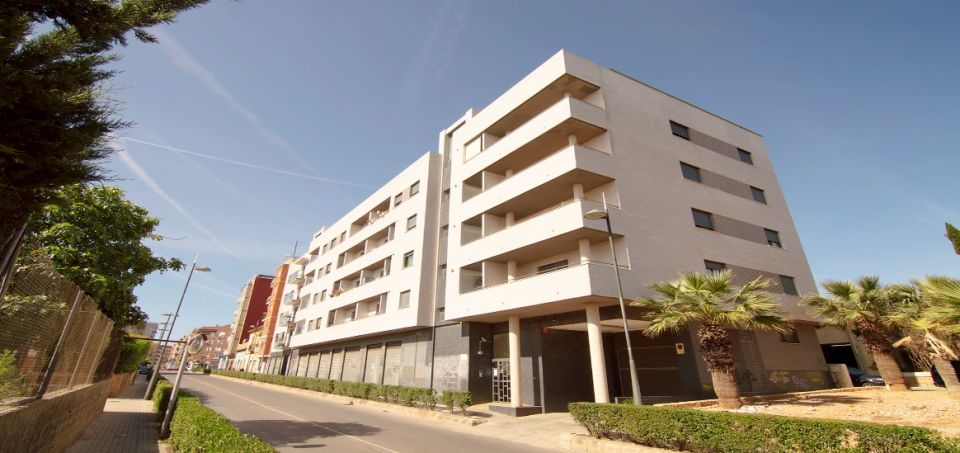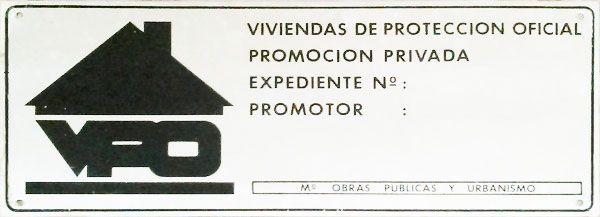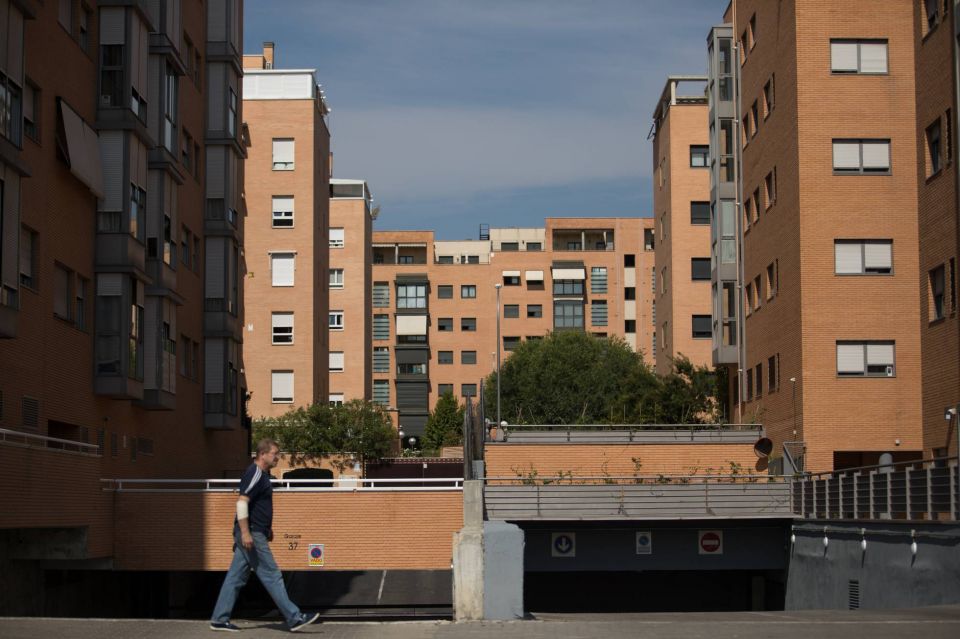State-subsidised housing (VPO) in the Valencia Region
The Generalitat's right of first refusal on VPOs: a control measure or an obstacle for the real estate market?
Today in Monapart Valencia It is time to talk about a topic that is very topical in the Valencian Community: subsidised housing or VPO. On 28 December 2018, the DOGV (Official Gazette of the Generalitat Valenciana) published the Law 27/2018, on fiscal measures, administrative and financial management and organisation of the Generalitat de Catalunyawhich included a surprise that the real estate agencies in the community have not fitted in with much joy. By virtue of the law, transfers of public housing are subject to the right of first refusal by the Generalitat.
Wait a minute...waiver and withdrawal? You may have heard the two words in question, for example, in a rental contract (if you have heard them in a football match, it may be something else). Let me explain: by pre-emption we mean the right of a person (natural or legal, and in this case, a public entity) to buy a specific property at the same price that a third party was going to acquire it; retraction is, in essence, the same thing, but when it is exercised after the transfer.
Under the new law, transfers of public housing are subject to the Generalitat's right of first refusal.

Earlier I mentioned rental contracts, as this figure usually appears in the form of a waiver. The right of first refusal is a waivable right of the tenant (tenant), and it is quite common for the landlord (owner) to request this waiver expressly in the lease. But in the absence of such a waiver, the tenant can buy the property where he lives from the landlord at the price at which a third party was going to buy it: this is the pre-emption. If no waiver has been made, the sensible thing for the landlord to do is to notify the tenant of his intention to transfer, to whom, when and for how much. And we say the sensible thing to do, because article 25 of the defectively drafted Urban Leasing Law (at least, the one at the time of writing). is in force) mentions such notification, but does not explicitly state that it is mandatory. Such notice is also mentioned in Article 14, but not explicitly either. OK, we understand, but is it so difficult to say clearly that the lessor must notify the lessee of the transfer? We continue: this "crack" in the law leads us to the second case, that of the retracto. José Miguel, owner of a flat in Paiporta, plans to sell the flat to Encarna for 100,000 euros. He says nothing to Ricardo, the tenant of the flat, who also wanted to buy it. He goes to the notary's office and sells the flat to Encarna. That is when Ricardo tells José Miguel to back out. Encarna is left without a flat and with her nose in a twist, because José Miguel has not given notice when he "should have". And Ricardo gets the flat for 100,000 euros.

The sainete-introduction serves to define these two rights and to give a more or less graphic explanation of them. As the aim is to understand them in the context of VPOs, I have left out the exceptions and various casuistry of the Law on Urban Leases, in case there are any jurists with sharp teeth and claws waiting to contradict me. But Mr. jurist, I have come to talk about another law, that of the 2019 budgets that occupies us (that's what we'll call it, because its first name is very long). In it, as I was saying, the Generalitat grants itself the right of first refusal on all protected housing (within the term of protection, of course). To be clear, the Generalitat is Ricardo, who in the previous example held the right; the seller is still José Miguel; and poor Encarna is now in a mess, because she is not sure if she can buy the flat she wants. As the situation has been understood, let's talk a bit about what the problem is and then I will comment on how to proceed.
First of all, do you know what social housing is? Well, I'm sorry to disappoint you, but that's not what I'm here to talk about today. Even so, I will tell you that it is a home that meets a series of requirements, including a maximum price, in order to access certain public subsidies and that the administration can be the one to promote it (it can also be privately promoted or self-promoted). It is therefore a form of protection aimed at facilitating access to housing for those who, in theory, have difficulties in accessing it. This is defined by requirements, e.g. maximum rent.

The idea is that this is housing with a social purpose, insofar as there is public spending for this purpose. I don't think it is debatable that access to housing is complicated for a large part of the population. And without wanting to go into it in depth, it is easy to understand the motivation behind this new law: the Generalitat has a budget in 2019 to promote this type of housing, and by extending this right of first refusal (which, mind you, was previously for 10 years, but already existed), it has access to second-hand housing that meets the requirements for protection, that is already built (important) and that is cheaper than building new (also important). The Generalitat, like our friend Ricardo, will throw its hands up in the air when it thinks it has to look for affordable land to develop.
The complaint of many real estate agencies focuses on the haste with which this change has been implemented (in reality, the law amends another law, the 8/2004 on housing in the Valencian Region). Although I must say that, due to the characteristics of our portfolio, at Monapart Valencia we have not been affected yet, we understand the general anger. By the way, our colleagues at Monapart Alicante does affect them, so we still understand it a little bit more. To illustrate, the law is dated 27 December 2018, published the following day, and came into force on 1 January 2019, three days later. Almost without publicity, without moratoriums, just like that. Generalitat, alma de cántaro, what if you had given us a little advance notice? What if you had implemented all this in a different way? Don't you think it's excessive to have 60 days waiting for a potential buyer? What do I say to Encarna? And what if you were to create a "register" or "stock exchange" in which you could identify whether a property is likely to be acquired preferentially by you? How about some kind of "pre-application"? And by the way, Generalitat, are you planning to buy blind, without going to see the house? Please, spend your money well, because it will run out...
Does anyone remember those valuations of Caja Murcia and CAM with free rent value much higher than the legal maximum and how these entities gave the 80% of the valuation?
While I understand the anger and realise that sooner or later we will probably have to go through this, there are also a couple of things (or three) to be said. Firstly, I don't think I'm discovering Atlantis if I say that the VPO market is somewhat perverted. Many have entered the free rental market, have generated capital gains as free rentals (tell me "maximum legal price" and I will talk about "..."), and have been able to sell their properties in the free rental market.black money"Does anyone remember those appraisals of Caja Murcia and CAM with free rent values much higher than the legal maximum and how these entities gave the 80% of the appraisal? In fact, does anyone remember Caja Murcia and CAM, did they do well after that?
There is also something else to be said: now the period of pre-emption and withdrawal is the same as the period of protection of the property, but before it was 10 years. In other words, the same but for a longer period of time. With a well-articulated system, we would not have to pull our hair out. In addition, there is the possibility of disqualifying housing. I'm not saying it's easy, but now it can be more or less as easy as selling with this limitation.
And thirdly, and this is where we have to try to swallow our anger: we should assume that this modification of the law is designed to facilitate a more dynamic public housing stock (and at the same time fight a little against black money and fraud). This should not bother us real estate agents (or homebuyers). But we have to demand that the purpose of the law is fulfilled and also demand that the procedure is informed, that it is made more agile and that it does not hinder those who want to buy or sell legitimately.
We should assume that this change in the law is designed to facilitate a more dynamic public housing stock.
Finally, a brief review of the procedure: anyone who is going to sell a protected dwelling must first contact the Generalitat. Before, the maximum price and the freedom to sell (a permit to sell) were requested, but now it will ALWAYS be necessary to notify the will to sell the property, who is buying, when and for how much. The Generalitat has 60 days to reply if it wants to keep the property. It can also not reply, so after 60 days the right of first refusal will be extinguished. We know that right now the administration is trying to answer "no" very quickly to get out of the impasse. Once this is done, with the approval, you can proceed to transfer the property. If you are thinking of cheating someone, the notary who will notarise the deed is planning to send a copy to the Generalitat, so if you have not thought about the pre-emption, you are going to have to think about the retraction. In addition, the registrars are supposedly asking for a negative response from the Generalitat before proceeding to register the sale. In the event that the Generalitat says "yes, I do", you will have to wait up to 4 months to get paid, which is not ideal either. And then, of course, there are the exceptions: if you are dealing with inheritances or donations between ascendants, descendants, spouses or common-law partners, you don't have to worry about this.
Since the end of 2018, subsidised housing (VPO) in Valencia is subject to the right of first refusal by the Generalitat. If you read this but still feel the same, keep reading this post by Monapart Valencia and you will understand...





